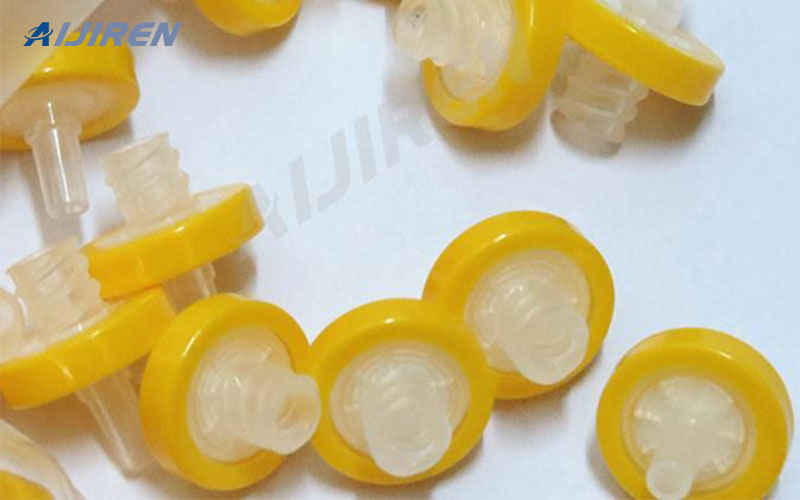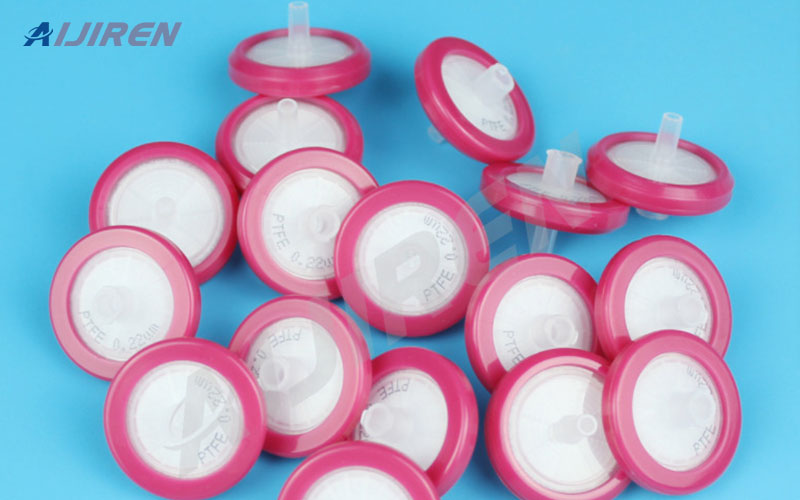PTFE Syringe Filter
Syringe filters usually consist of a plastic housing with a cover that serves as a filter. The liquid to be purified or cleaned can be cleaned by pulling the syringe up through the filter or forcing the filtered liquid through the filter.
Advantages of the filter Syringe filters help to establish organic solutions and aqueous solutions for testing without use and sterility. These filters are required for biotechnology businesses, pharmaceutical applications, and food and beverage laboratories.
PTFE Polytetrafluoroethylene is a membrane that is very suitable for filtering samples and highly corrosive substances based on gaseous or organic solvents. The hydrophobic PTFE membrane provides you with chemical resistance to aggressive media and excellent temperature stability, thereby expanding the sampling range. Choose PTFE needle-punched filter to improve filtration efficiency in any area. They provide high-performance filtration through an application-centric design and can be used in various industries that process organic samples.

Application of PTFE syringe filter
The product or sample you are using is a highly acidic non-aqueous solvent, or a product or sample that is chemically etched with a PTFE syringe filter. This type of syringe filter has high chemical inertness, but it will not be damaged even when handling strong acid samples. These filters are disposable filters that allow you to easily handle acidic samples. The use of PTFE syringe filters can be used for corrosive solvents, aerosol sampling, degassing agents, exhaust applications and organic-based HPLC filtration. The syringe filter has a variety of different filter covers, and has a wide range of chemical compatibility, and has strong chemical stability and inertia. The volume and filtration accuracy depend on the pore size and retention volume of the membrane. If you are looking for a separation and filtration method for aggressive samples, this syringe is the best choice. They are also very useful in the protection of vacuum pump pipelines and have the qualities of high absorption and retention capacity. Due to their advantages, these syringes can be used in laboratory situations as well as industrial applications.
More applications of PTFE syringe filters are for analysis and research applications and air sampling. Use conditions under extreme chemistry or temperature. Used for filtration of non-aqueous organic solvents. Ideal for filtering highly aggressive colloidal solutions.

PTFE
The components of the syringe filter These syringe filters usually have a hydrophobic PTFE filter medium and are placed in glass fiber reinforced polypropylene. In order to obtain a higher filtering effect, there are two types of outlets, one is a male Luer sliding outlet, and the other is a female Luer lock inlet. The syringe is designed to provide the highest purity and performance, and can even be gas sterilized, non-sterile or autoclavable. These syringes have different types of covers for separation and purification. Each unit contains two pre-filters, which can easily filter difficult or corrosive samples. They are designed in such a way that almost no labor is required.
How to choose the right PTFE syringe filter? After considering the following important factors, you can choose a PTFE filter: determine the type of solvent, check the sample size, select the appropriate porosity, and check the resistance level.


